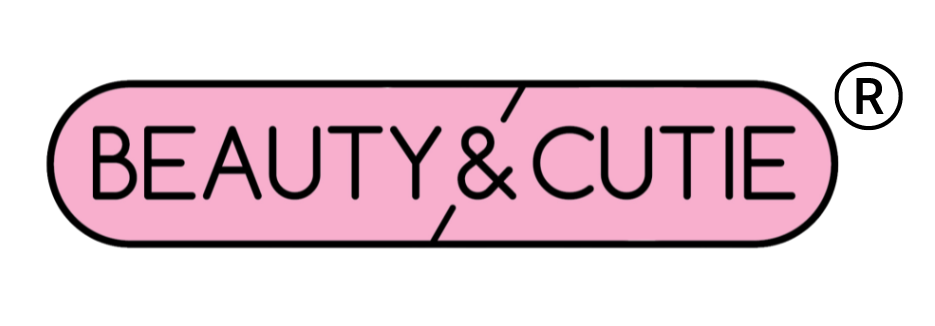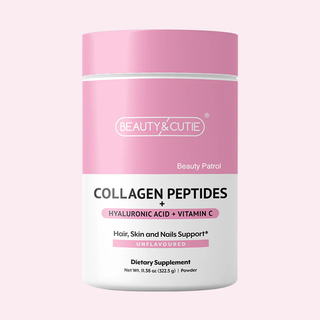Many women experience hard water problems, which can significantly affect the health of their hair. High quantities of minerals in hard water, including calcium and magnesium, can form deposits in the hair, making it challenging to grow healthy, glossy hair. But does hard water actually harm hair? This article will examine the truth about hard water and how it affects your hair as well as offer advice on how to maintain healthy, attractive hair even in locations with hard water.
What Is Hard Water?
Hard water is water that contains high levels of salts and minerals such as calcium, magnesium, and iron. These minerals can build up in showerheads, faucets, and pipes, producing mineral deposits known as limescale. Your hair may develop a mineral buildup from exposure to hard water, which can make it feel dry, dull, and challenging to manage.
What Is Soft Water?
Soft water is water that has low levels of dissolved minerals, specifically calcium and magnesium. This happens when water flows past specific kinds of rocks or a water-softening system. Soft water, as opposed to harsh water, is kind to hair and makes it feel smooth and soft. Soft water is a preferred option for many households since it makes soap and shampoo lather more easily. It is crucial to remember that soft water could not be safe to drink because the softening process may have increased the sodium content. To find the best solution for your unique needs, it is always advised to have your water analyzed.
How Does Hard Water Damage Hair?
While hard water may not be damaging to your hair directly, it can certainly affect its appearance and manageability. Your hair may develop a covering from the minerals in hard water, which keeps moisture from accessing the shaft and causes it to become dry and brittle. This could result in breaking, split ends, and dullness.
Additionally, mineral buildup can interfere with the performance of hair products, reducing their ability to clean and condition your hair. This implies that you might need to apply more products in order to get the same benefits, which could result in product accumulation and worsen the impacts of hard water.
Common Effects Of Hard Water On Hair
Here are the six common effects of hard water on hair:
- Dryness and Dullness: Excess minerals in hard water can cause your hair to become dry, dull, and lifeless. The minerals create a coating on the hair shaft that keeps moisturizing agents from penetrating, resulting in dryness.
- Breakage and Hair Fall: Hard water can also lead to breakage and hair fall. The mineral buildup can weaken the hair shaft, causing it to break easily. Additionally, the dryness caused by hard water can lead to hair fall and thinning.
- Itching and Irritation: Hard water can also cause itching and irritation on the scalp. The residue of mineral buildup can clog hair follicles, leading to inflammation and discomfort.
- Color Fading: If you color your hair, hard water can cause the color to fade more quickly. The minerals in hard water can strip away the color molecules, leaving your hair looking dull and faded.
- Difficulty Styling: Styling your hair can become more difficult with hard water. The mineral buildup can cause tangles, making hair feel rough, and making it harder to style and manage.
- Reduced Elasticity: Hard water can also affect the elasticity of your hair strands. The mineral buildup can make your hair feel stiff and inflexible, reducing its elasticity and making it more prone to breakage.
Hard water can have several negative effects on hair, including dryness, breakage, itching, color fading, difficulty styling, and reduced elasticity. The mineral buildup from hard water can cause a coating on the hair shaft, leading to dullness and weakening of the strands.
How Can I Protect My Hair From The Effects Of Hard Water?
Here are some ways to protect your hair from the effects of hard water:
- Install a Water Softener: Installing a water softener in your home can help reduce the amount of minerals in your water, protecting your hair from damage.
- Use a Clarifying Shampoo: Using a clarifying shampoo once a week can help remove mineral buildup from your hair. Look for shampoos that are specifically designed for hard water.
- Use a Vinegar Rinse: Rinsing your hair with a mixture of apple cider vinegar and water can help remove mineral buildup and restore shine to your hair.
- Invest in a Shower Filter: A shower filter can help remove minerals and impurities from your shower water, protecting your hair from damage.
- Condition Your Hair: Using a deep conditioning treatment once a week can help keep your hair moisturized and prevent dryness and breakage.
- Moisturizer: Using a leave-in moisturizer or hair oil can also help protect your hair from the effects of hard water. Look for products that contain natural oils like coconut or argan oil, which can help nourish and strengthen your hair.
- Deep Clean: Regularly deep cleaning your hair can also help remove any buildup from hard water. Consider getting a professional deep conditioning treatment or using a DIY hair mask made with natural ingredients like avocado or honey.
By taking these steps, you can protect your hair from the damaging effects of hard water and keep it looking healthy and beautiful.
How Can I Tell If My Water Is Hard or Soft?
Now that you know the effects of hard water on your hair, it's important to know how to identify if you have hard water or soft water. Here are some signs to look for:
- White spots: If you notice white spots on your dishes, glassware, or shower doors, it could be a sign of hard water.
- Soap scum: Soap scum buildup in your sink or bathtub is a common sign of hard water.
- Dry skin: Hard water can also cause dryness and irritation on your skin.
- Stiff laundry: If your clothes feel stiff and scratchy after washing, it could be due to hard water.
- Low water pressure: Mineral buildup in pipes can cause low water pressure and slow drains.
If you suspect that you have hard water, you can purchase a water testing kit or contact your local water provider for more information. Knowing if you have hard water can help you take the necessary steps to protect your hair and other household items from damage.
Can Hard Water Cause Hair Loss?
While hard water may not cause hair loss directly, its effects on hair can lead to hair breakage, which could eventually contribute to hair loss. The mineral buildup in hard water can cause hair to become dry, brittle, and prone to breakage. When hair breaks, it becomes shorter and thinner, which can eventually lead to noticeable hair loss.
Moreover, the mineral buildup in hard water can clog the hair follicles, preventing new hair growth and causing existing hair to fall out. This can be particularly problematic for individuals with fine or thinning hair.
Conclusion
Hard water can have a negative impact on your hair, causing dryness, dullness, and breakage. Clarifying shampoo and conditioner, a deep conditioning treatment, or the use of a natural hair mask are all effective ways to protect your hair from the negative effects of hard water.
It's crucial to determine whether you have hard water and take the appropriate measures to deal with it, such as giving your hair a vinegar rinse or getting in touch with your local water supplier for further information.
While the effects of hard water on hair may not directly cause hair loss, they can eventually cause breakage and thinning, which can eventually lead to hair loss. You can maintain a healthy, lovely, and full appearance for your hair by taking precautions to protect it from hard water damage.
Final Thoughts
Beauty and Cutie’s collagen powders are crafted to support vibrant, healthy hair. Our unique formula delivers essential collagen peptides and amino acids to promote cell production and deeply nourish your hair from the inside out. Achieve the beautiful, luscious locks you deserve with Beauty and Cutie!
Sources
- https://chem.libretexts.org/Bookshelves/Inorganic_Chemistry/Supplemental_Modules_and_Websites_(Inorganic_Chemistry)/Descriptive_Chemistry/Main_Group_Reactions/Hard_Water
- https://clearwaterarizona.com/blog/properties-of-soft-water
- https://www.allthingshair.com/en-us/hair-care/dry-and-damaged-hair/what-causes-split-ends/
- https://www.freshwatersystems.com/blogs/blog/what-is-a-water-softener-and-how-does-it-work
- https://aquasureusa.com/blogs/water-guide/what-is-a-shower-head-filter-and-is-it-worth-it
- https://www.culligan.com/blog/4-reasons-why-your-hair-color-fades-so-fast
- https://www.evolveseries.com/about-us/blog/40763-signs-of-hard-water-how-to-wipe-them-out.html
*These statements have not been evaluated by the Food and Drug Administration. This product is not intended to diagnose, treat, cure or prevent any diseases.


